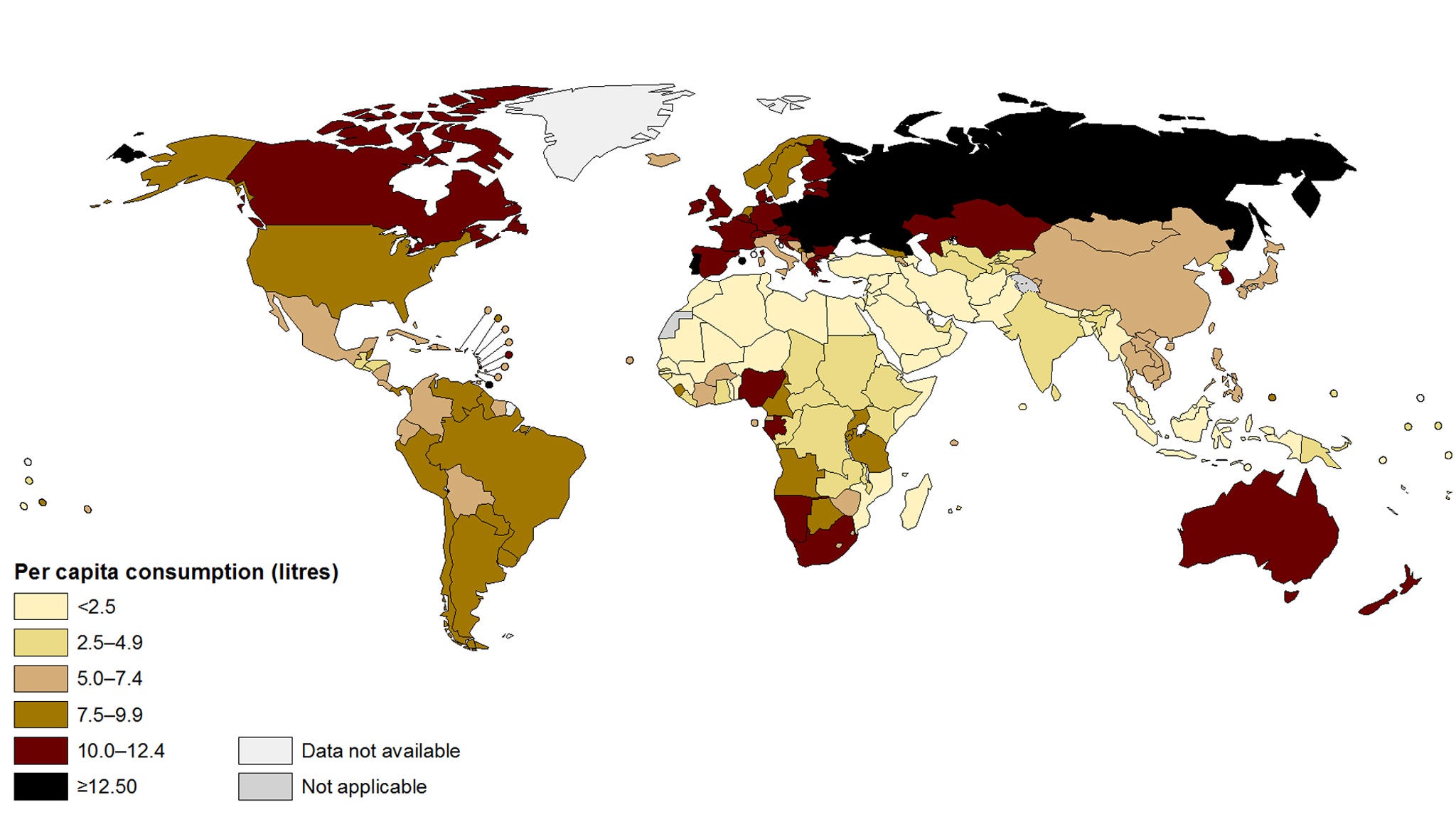World's heaviest drinking countries revealed - and the UK doesn't even make the top 10
A report by the World Health Organisation (WHO) looked at levels of alcohol consumption in its 194 member states

People in the UK are among the most prolific drinkers in the world, according to a report released by the World Health Organisation (WHO).
Britons over the age of 15 on average drink 11.6 litres of pure alcohol a year, according to the “Global status report on alcohol and health 2014”.
The report provides country profiles for alcohol consumption in the 194 WHO member states, looking at the resulting impact on public health and policy responses.
And it reveals that the harmful use of alcohol causes 3.3 million deaths a year worldwide.
Europe is the region with the highest consumption of alcohol per person, making up the entire top 10.
Belarus takes the top spot, with people on average drinking 17.5 litres of pure alcohol a year, followed by the Republic of Moldova where the figure is 16.8 litres.
Australia and Canada also have high levels of alcohol consumption, with people on average drinking 12.2 and 10.2 litres a year respectively.
In the United States the figure is marginally lower at 9.2 litres.
But in northern Africa and the Middle East, the average figure is less than 2.5 litres of alcohol per person, with many countries having figures below one litre.
The average figure globally is 6.2 litres of pure alcohol per person per year.
But as less than half the world population (38.3 per cent) actually drinks alcohol, this means that those who do drink consume on average 17 litres of pure alcohol annually, the report said.
The WHO warned that alcohol consumption increases the risk of developing more than 200 diseases, including liver cirrhosis and some cancers.
Dr Oleg Chestnov, WHO assistant director-general for non-communicable diseases and mental health, said: “More needs to be done to protect populations from the negative health consequences of alcohol consumption.
"The report clearly shows that there is no room for complacency when it comes to reducing the harmful use of alcohol.”

The report also points out that a higher percentage of deaths among men than among women are from alcohol-related causes - 7.6 per cent of men's deaths and four per cent of women's deaths - though there is evidence that women may be more vulnerable to some alcohol-related health conditions compared to men.
Dr Shekhar Saxena, director for mental health and substance abuse at WHO, said: “We found that worldwide about 16 per cent of drinkers engage in heavy episodic drinking - often referred to as 'binge-drinking' - which is the most harmful to health.
"Lower-income groups are more affected by the social and health consequences of alcohol. They often lack quality health care and are less protected by functional family or community networks."
The report also highlights the need for action by countries including national leadership to develop policies to reduce harmful use of alcohol, national awareness-raising activities and health services to deliver prevention and treatment services, in particular increasing prevention, treatment and care for patients and their families, and supporting initiatives for screening and brief interventions.
The figures represent the average amount of pure alcohol consumed per capita in each country between 2008 and 2010.
Additional reporting by Press Association
Join our commenting forum
Join thought-provoking conversations, follow other Independent readers and see their replies
Comments
Bookmark popover
Removed from bookmarks